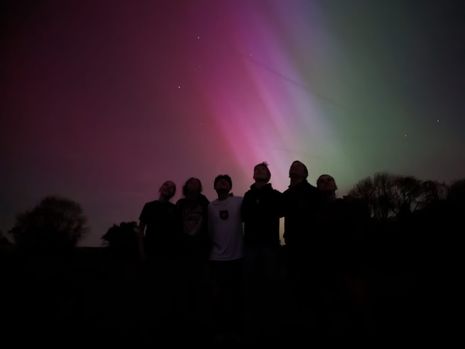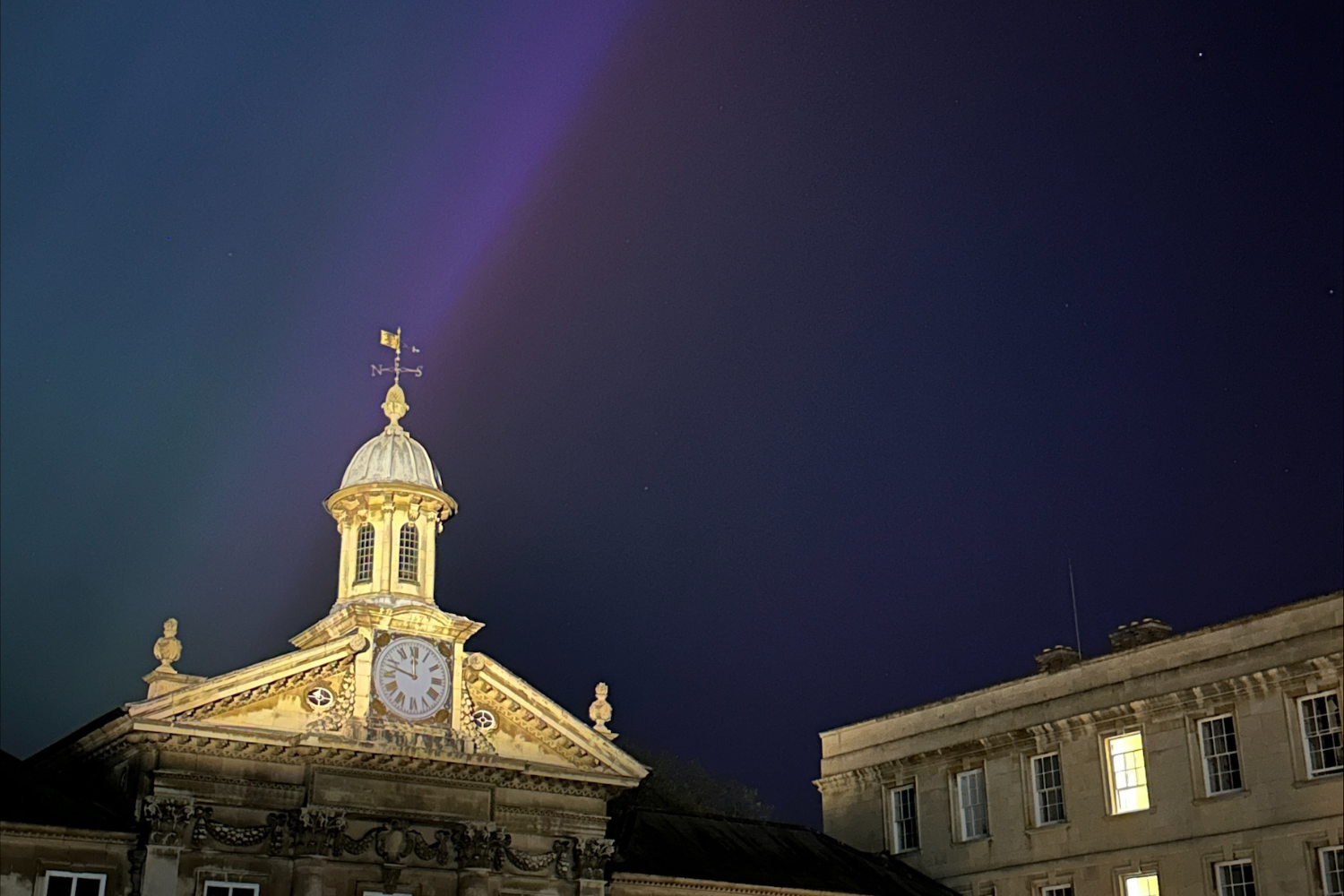
On a balmy mid-May evening, Cambridge was bathed in a warm glow emanating from the skies above. Hues of bright red, electric green, pink and purple painted the sky. In an incredibly rare event, the Northern Lights, Aurora borealis, were visible across the entire breadth of Britain. Students set aside sleeping and the stresses of exam term to flock out into the twilight and take pictures of this stunning natural phenomenon.

The exact mechanism that produces the aurorae still remains a mystery, but we know the basic principles behind them. The Sun constantly ejects a stream of charged particles, which travel towards Earth at great speed. The Earth, much like a familiar bar magnet, has a magnetic field around it, protecting it from the onslaught.
When these high-energy particles interact with the Earth’s magnetic field, they drop into the atmosphere, ripping off electrons from atoms in its upper reaches. As these atoms regain electrons, energy is released in the form of light, with each colour corresponding to a different type of atom regaining an electron. This leads to the brilliant array of colours seen in the night sky.

This particular event was caused by a ‘solar storm’ – a surge in activity of the Sun that results in a bigger flood of charged particles. The American National Oceanic and Atmospheric Administration (NOAA) rated this storm as ‘severe’ – the first such event since October 2003. This led to aurorae being visible at much more southerly latitudes than usual. Whilst producing a beautiful night sky, solar storms can also be greatly damaging, causing power outages, navigation and communications blackouts.


